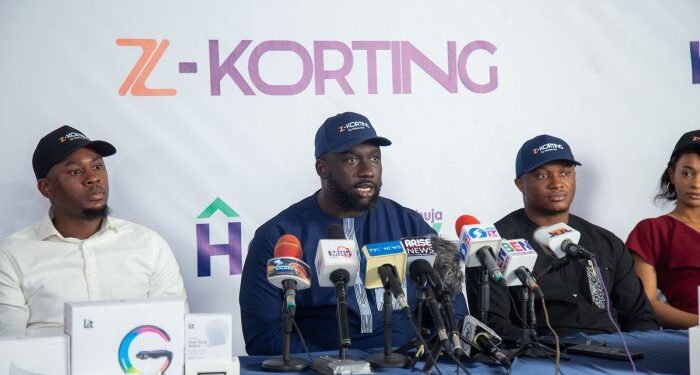In a bid to tackle the issue of affordable housing, renowned sustainable real estate developer Kairos Hof Consultants in partnership with Louie Innovation have announced its latest venture, Z Korting, an innovative housing initiative targeting young adults in Nigeria.
The project is aims to empower Nigerians by providing accessible housing opportunities.
At a press conference in Abuja, the Managing Director of Kairos Hof Consultants Ltd and Group Chairman of Kairos Hof Group, Olagoke Fagbohun, emphasized the company’s commitment to addressing the socioeconomic needs of Nigerian youths.
He highlighted Z Korting as a platform enabling young adults to realize their dreams of homeownership. Adding that it can be accessed through https://www.kairoshof.com https://www.kairoshof.com/zkorting.
“The pilot phase of the project comprises 17 five-story apartment buildings designed to cater to urban living preferences while offering comfort and youthful experiences. Initially launching in Hof City, Abuja, the initiative aims to expand to other major cities across Nigeria.
“Notably, Z Korting is tailored to appeal to the younger demographic, particularly digital nomads seeking a blend of community and innovation.
“In terms of deliverables, first of all, we are starting with 17 blocks for the first cluster.
17 blocks of five story buildings providing approximately a 100 plus apartment so that we can launch the first phase of this project and meet up with our demand.
“Second, we need media support to enlighten people about this, we can only do that with the collaboration of media houses.
“In terms of making sure people enjoy the quality of what we intend to provide, the simple thing to do is to make sure the information is out there, and what this means is that we are going to do a lot of publicity about it,” he said.
In the same vein, the Ojehomon Anetor Director of Business Development, described the project as offering a holistic living experience, encompassing work, leisure, and dining options.
He said, “Given Nigeria’s burgeoning youth population, comprising 70% of the total populace, Z Korting fills a crucial gap in the housing market by providing real estate investment opportunities tailored to the younger generation. By offering apartments above basic standards, the initiative aims to empower young professionals to become property owners and generate income from their investments.
“In essence, Z Korting presents an opportunity for young Nigerians to own their future, with homeownership serving as a testament to their achievements and a stepping stone to financial empowerment.”











